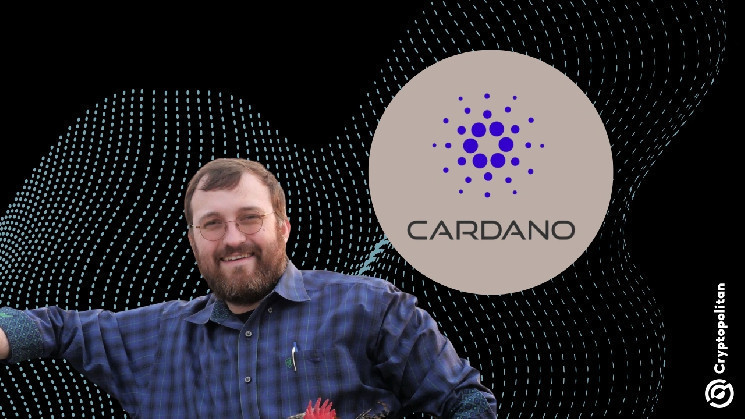Charles Hoskinson, the creator of Cardano and one of Ethereum’s original co-founders, is a misunderstood genius who took the hard road, building a blockchain on foundations of academic research and rigorous engineering.
Critics love to dismiss him as a loudmouth; some call him a villain. However, the facts suggest otherwise. Charles is undoubtedly one of the sharpest minds driving the evolution of decentralized technology, and perhaps it’s time we stopped overlooking that.
The early days: Ethereum’s first CEO
Charles’s crypto story began with Ethereum. In its infancy, Ethereum had a team of co-founders who didn’t exactly see eye-to-eye. Charles’s role was important — he served as Ethereum’s first CEO.
His vision was essentially the same as Vitalik Buterin’s: for Ethereum to become a hub for decentralized applications, giving developers tools to build beyond the constraints of Bitcoin.
The drama started when governance came up. Charles advocated for a for-profit structure to secure venture capital and scale Ethereum faster. Others in the team, including Vitalik himself, thought otherwise, favoring a non-profit model.
The disagreement ended in Charles’s exit in 2014. Ethereum grew into the giant we know today, but Charles had already moved on, ready to prove he didn’t need Ethereum to change the world.
Building Cardano: A blockchain unlike any other
In 2015, Charles teamed up with Jeremy Wood to launch Input Output Hong Kong (IOHK), a blockchain research and engineering company. Their flagship project? Cardano.
Launched in 2017, Cardano was Charles’s answer to what he believed were Ethereum’s shortcomings: lack of scalability, insufficient security, and unsustainable governance.
Cardano’s approach wasn’t flashy. It was methodical. Every piece of its architecture was peer-reviewed by academics and built with formal methods. Charles has often described Cardano as “one of the greatest technical achievements in human history.”
And he wasn’t lying. As of late 2024, over 1,000 projects are active on Cardano’s blockchain, with more coming every day. Its proof-of-stake (PoS) system uses a fraction of the energy Bitcoin needs, making it a sustainable option in a world increasingly concerned about energy waste.
The Hoskinson effect: Love him or hate him
Charles is a polarizing figure. On one hand, his vision is respected. On the other, his brash attitude on social media makes him an easy target. Critics call Cardano a “zombie chain,” arguing it lacks the activity of competitors like Solana or Ethereum.
The truth? Cardano’s ecosystem is growing steadily even without the hype. Charles himself has addressed these criticisms, once famously saying, “Guess I’ve become a human Rorschach test. People see what they want to see.”
His outspoken nature hasn’t always helped. Charles’s sharp wit and unfiltered commentary rub a lot of people the wrong way.
He’s called out journalists, competitors, and even his own critics, sometimes with a tone that can be seen as less than professional. Case in point: his quip about critics being the “paint chip brigade.”
Love him or hate him, you can’t accuse him of being boring.
Charles’s frustrations with the crypto industry aren’t without reason. Admittedly, the industry often prioritizes speculation over substance, something he’s repeatedly slammed. He once conducted a Twitter poll asking, “Am I cancer for Cardano?” Out of the 50,501 people who voted, 51.6% of them said ‘Yes.’
With a net worth of around $1.2 billion, Charles is funding projects most people wouldn’t even dream of. Glow-in-the-dark plants? Check. Efforts to detect extraterrestrial life? That’s on his list too.
At the core of his work is a belief in decentralization’s power to fix broken systems. “Crypto doesn’t want to set the world on fire; it just wants to start a flame in your heart,” he said once. Corny? Sure. But it’s hard to argue with the sentiment, especially in a bull run as intense as this one.
War on bad policy
Earlier in the year, Charles took his fight to the political stage. He openly supported Robert F. Kennedy Jr. for U.S. president, calling for leaders who understand crypto. “The American people deserve better leadership than what is currently offered,” he said.
Not stopping there, Charles criticized the Biden administration’s alleged “deal” with Senator Elizabeth Warren to suppress crypto companies. He argued this kind of policy hurts innovation and unbanks legitimate businesses.
Charles proposed a “Bill of Rights” for crypto users, covering taxation, consumer protection, and asset classification. In November, he revealed plans for “Operation Baseline,” a campaign to identify inefficiencies in the U.S. crypto market and push for actionable legislation.
He also suggested Coinbase CEO Brian Armstrong as a potential “White House Crypto Czar” under the Trump administration, arguing Armstrong’s leadership could unify the industry.
Internationally, Charles met with Argentine President Javier Milei to discuss blockchain integration in government systems. His advocacy for aligning U.S. crypto laws with global standards, like those in Switzerland or Singapore, shows he’s thinking far beyond borders.
Whether Cardano wins or not, Charles’ relentless vision is proof that sometimes, being misunderstood is the cost of leading.
Read the full article here

